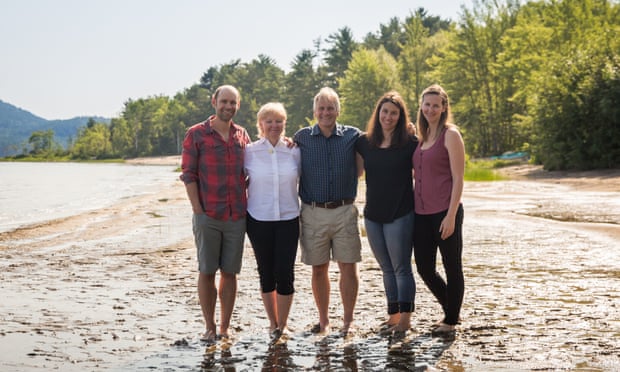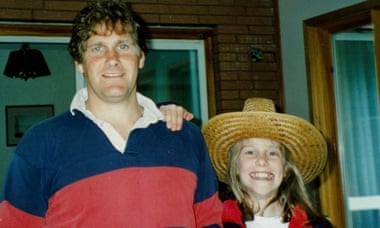
A teacher changed my life. When I was 15, I was talkative and outgoing, and more interested in being sociable than in working hard. It was 1969, and I was at high school in Amherst, Nova Scotia, in eastern Canada. I never paid much attention, doing the bare minimum and often betting that nobody else would do their homework, so I needn’t either. But I did read a lot. I ignored most of what I was taught but loved reading science fiction and books about people surviving on desert islands.
I did not enjoy geometry, although I liked the philosophical approach of our teacher, Mrs Trenholm. She talked about how geometry was humankind’s ability to work things out, that there are truths, and that clear thinking and logic could solve problems. I couldn’t do the work, but thought that was interesting.
A month or so into the year we had started on Euclidean geometry. We were all struggling and I was probably the most vocal in class about it. Mrs Trenholm set us homework, asking us to try to solve a problem – to prove two angles in a complex geometric shape were equal – by the next morning. Perhaps because I had been the most outspoken student, she pulled me aside as we were leaving class and said: “Don’t talk your way out of this.”
I didn’t know what she meant, but I went home, worked on it for 20 minutes, thought, “I can’t do this and no one else in the class will be able to do it either” and gave up. I went to bed about 10pm – and woke up a couple of hours later, which was unusual. My first thought was, “I’ve done exactly what she said I was going to do.” Then I decided to try again. I sat at my desk and started.
My handwriting was messy, and I noticed that if I made the diagram neater and bigger, I could see where I was probably going to go wrong. I kept trying and trying. Then I decided to save all the failed attempts, to try to build some order out of it. I found that I could make predictions, so I could stop earlier, knowing that it wasn’t going to work or that I was repeating myself. I remember being surprised that I was making headway because I initially thought I had no idea how to do it.
At about 5am, pencil eraser pieces all over the desk and paper everywhere, I got it. I could remember every failed attempt and where I had gone wrong, and I knew that it was right. At that moment I felt like my brain had been rewired. All of a sudden, I could remember things Mrs Trenholm had said in class about clear thinking and the philosophy of logic. It was exciting and I felt really proud. I thought: “I can be somebody different. I don’t have to be somebody who walks around avoiding things; I can work things out.”
I handed it in the next day. Mrs Trenholm would never embarrass students in front of everyone – she would always go round and talk to individuals. Finally, she came to me and handed me the paper. I could see it had a little check mark in the corner. She looked right at me and asked: “Did you do this?” When I said yes, she nodded and went back to the front of the class and said: “One of you now understands Euclidean geometry. Let’s keep going so everybody gets it.”
It changed the rest of my life. I had been a below-average student with a lot of catching up to do, but I found that if I concentrated and worked hard, I could understand and even enjoy a subject. I think I became a lot more intense, though maybe less jovial, but I liked it. I went on to study maths and physics at university, then took a master’s degree in applied sciences and became a nuclear research scientist.
It’s clear to me that that one geometry class was when I began to think clearly about things. I retired in 2014, and my hobbies in retirement reflect this, too – I have an interest in cognitive science, known in philosophy as epistemology. How do we think, and why do we believe what we believe? These are interesting topics right now because of all the weirdness going on around the world.
It has helped my life in other ways. My wife, Carol, and I have three children, and I hope I’ve encouraged them to think logically and clearly: my son is a civil engineer, my eldest daughter is a lawyer, and our youngest daughter, Mallory, was a speech and language therapist. In March 2021, Mallory died suddenly of a brain aneurysm. She was 35, married and had two young children. She had gone back to university to do an intensive course on speech-language pathology, and was very calm, clear-thinking and kind. I feel very proud of her.

Somehow, 10th-grade geometry helped me cope better with this tragedy. It shouldn’t have: it’s just geometry, and how could that help? But I felt more able to confront what had happened. I still read a lot and I had The Little Book of Humanism with me when Mallory died and it helped. I didn’t let my emotions overwhelm me. It wasn’t about denying my emotions, but trying to process them in a calm way. In my grief, it helped to think that Mallory had had a good life. Her life was too short, but it had been good.
Through that one lesson, I became someone who no longer allowed myself the freedom to talk myself out of dealing with problems, or give up when things seemed too difficult. Mrs Trenholm retired from teaching a few years after teaching me, and went on to write a history book. She was a remarkable teacher and I regret never thanking her for changing my life.
As told to Emine Saner



